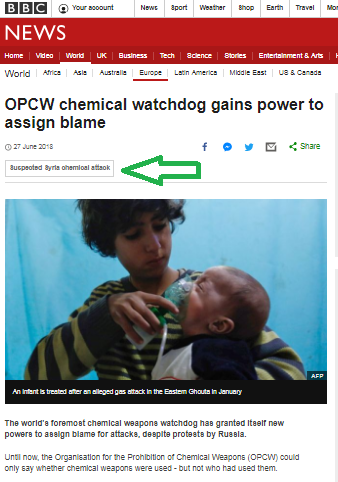In the early hours of Tuesday, Israel launched a military operation against Hamas, Operation Protective Edge, in response to incessant Hamas rocket fire and the terror group’s refusal to agree to a ceasefire. Though the Guardian was relatively slow to respond to the story, at 13:45 Israeli time they finally launched a Live Blog on the war, titled ‘Israel steps up offensive against Gaza – live updates‘, edited by Matthew Weaver.
One of the first blog entries highlighted the analysis of Chris Doyle, Director of the Council for the Advancement of Arab-British Understanding (CAABU). (As BBC Watch has noted, CAABU is a pro-Palestinian advocacy group, and a well-established part of the Arab lobby in the UK “with no fewer than three MPs and two former MPs sitting on its executive committee“.)
Here’s a snapshot of the Guardian blog post:

First, note Doyle’s odd understanding of Israeli history. We’re evidently supposed to believe that the Suez Crisis of 1956, the Six Day War in 1967, and Yom Kippur War in 1973 – and even the 2006 Lebanon War! – all can be fairly characterized as examples of “invading and smashing Gaza“?
Further, concerning the actual recent wars in Gaza (2008-09 and 2012), and despite Doyle’s skepticism on the efficacy of military actions, it’s quite clear that both major IDF operations resulted in a dramatic and sustained decrease in Hamas rocket attacks.
Also of note is Doyle’s strategy for solving the conflict – ‘opening up Gaza’, presumably by easing Israel’s blockade of illegal weapons – which conveniently overlaps with the demands set by Hamas, whose spokesperson earlier today said the group would not agree to a ceasefire until Israel’s blockade of Gaza ends.
Though Doyle does acknowledge that Hamas rocket attacks on Israeli civilians represent a war crime, he of course fails to factor in to the political equation Hamas’s refusal to accept Israel’s existence within any borders, their antisemitic ideology, and the explicitly genocidal threats of their leaders.
The words ‘War, what is it good for? Absolutely nothing’ are of course iconic song lyrics, but the sentiments they represent don’t provide Guardian readers with anything resembling a serious prescription for solving the myriad of problems caused by Islamist extremism in the Middle East.
Like this:
Like Loading...

Guardian Gaza War blog cites 'expert' on…platitudes and distortions
In the early hours of Tuesday, Israel launched a military operation against Hamas, Operation Protective Edge, in response to incessant Hamas rocket fire and the terror group’s refusal to agree to a ceasefire. Though the Guardian was relatively slow to respond to the story, at 13:45 Israeli time they finally launched a Live Blog on the war, titled ‘Israel steps up offensive against Gaza – live updates‘, edited by Matthew Weaver.

One of the first blog entries highlighted the analysis of Chris Doyle, Director of the Council for the Advancement of Arab-British Understanding (CAABU). (As BBC Watch has noted, CAABU is a pro-Palestinian advocacy group, and a well-established part of the Arab lobby in the UK “with no fewer than three MPs and two former MPs sitting on its executive committee“.)
Here’s a snapshot of the Guardian blog post:
First, note Doyle’s odd understanding of Israeli history. We’re evidently supposed to believe that the Suez Crisis of 1956, the Six Day War in 1967, and Yom Kippur War in 1973 – and even the 2006 Lebanon War! – all can be fairly characterized as examples of “invading and smashing Gaza“?
Further, concerning the actual recent wars in Gaza (2008-09 and 2012), and despite Doyle’s skepticism on the efficacy of military actions, it’s quite clear that both major IDF operations resulted in a dramatic and sustained decrease in Hamas rocket attacks.
Also of note is Doyle’s strategy for solving the conflict – ‘opening up Gaza’, presumably by easing Israel’s blockade of illegal weapons – which conveniently overlaps with the demands set by Hamas, whose spokesperson earlier today said the group would not agree to a ceasefire until Israel’s blockade of Gaza ends.
Though Doyle does acknowledge that Hamas rocket attacks on Israeli civilians represent a war crime, he of course fails to factor in to the political equation Hamas’s refusal to accept Israel’s existence within any borders, their antisemitic ideology, and the explicitly genocidal threats of their leaders.
The words ‘War, what is it good for? Absolutely nothing’ are of course iconic song lyrics, but the sentiments they represent don’t provide Guardian readers with anything resembling a serious prescription for solving the myriad of problems caused by Islamist extremism in the Middle East.
Related articles
Like this:
Meet CiF’s Wajahat Ali: Anti-Islamophobia crusader with a soft spot for anti-Semites
You may also like
Anti-Israel hatefest season kicks off
What Harriet Sherwood won’t report: Palestinians beaten by PA police
Faces of the IDF, faces of stereotypes: Countering the Guardian’s crude caricature of Israelis